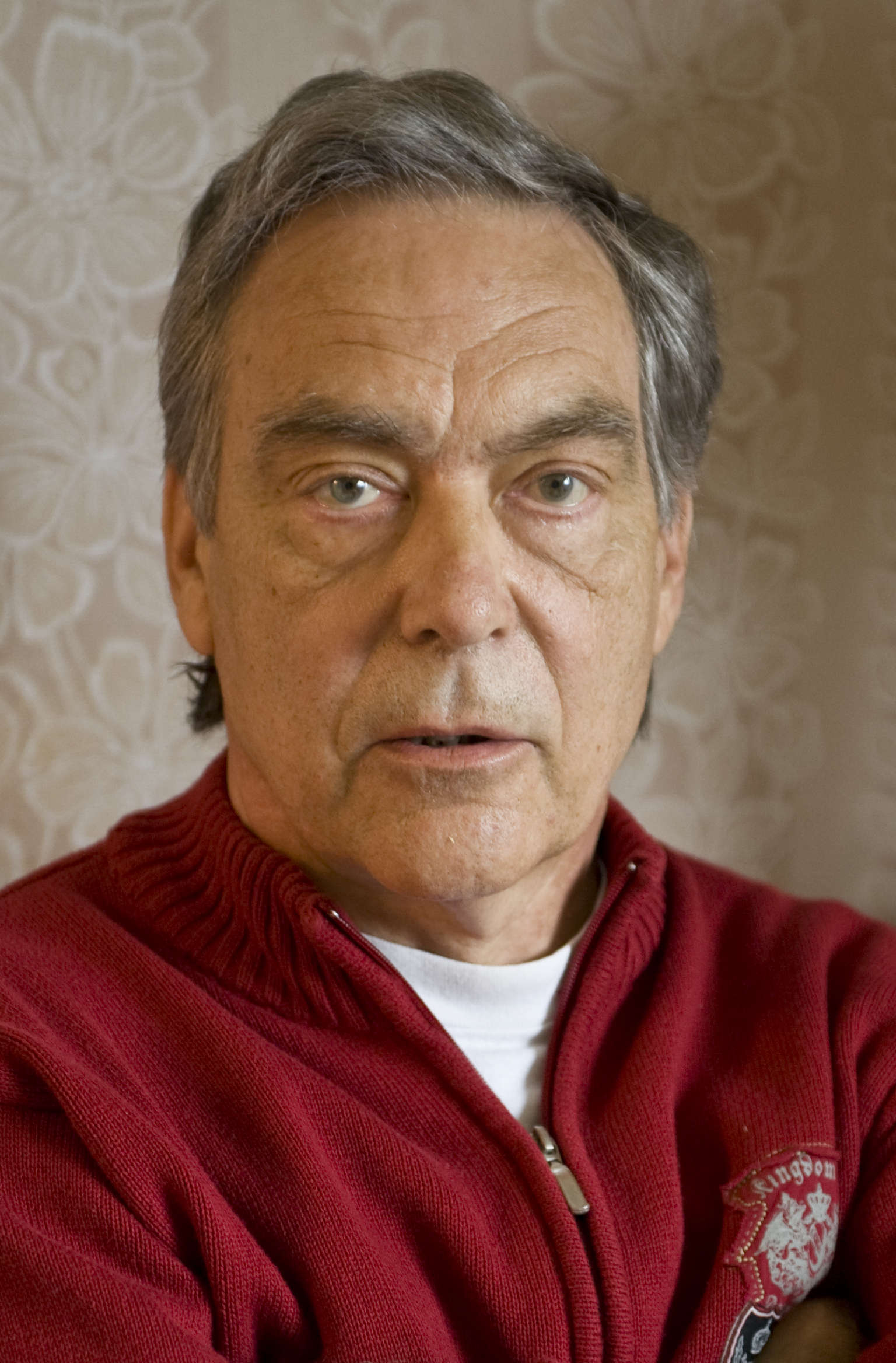
Aarne Biin
Aarne Biin (4 August 1942 – 26 July 2022) was a prose writer.
Biin was born in Virumaa County, attended school at Põimla and Võipere, and completed Tallinn Technical School of Light Industry in 1962 as a technician and electrician. He worked as a teacher and electrician, head of the department of readers’ letters at the newspaper Punane Täht and editor of radio broadcasts. He was a member of the Estonian Writers’ Union from 1997.
Aarne Biin started to publish short prose in 1966, but the major part of his creation appeared after Estonia regained independence. His works concentrate on male characters whose twists and turns in life and searches for themselves are depicted in depth in various areas of life in the framework of the era. The scene of his books is set in both Soviet and present-day Estonia with flashbacks into the more distant past. Often, the instigators of the protagonists’ searches and findings are female characters. War-time choices and life courses are observed in novels using documentary sources – Peegelleitnandid (‘Mirror Lieutenants’, 2001) and Ruts: sõjas ja vangis, armastuses ja abielus (‘Ruts: in War and Prison, in Love and Marriage’, 2009). The theme of his home county, Virumaa, has been applied in the novel Lossi peremehed (‘Lords of the Castle’, 2016). His creation also includes pure thrillers, for example, Venemaalt armastuseta (‘From Russia Without Love’, 2003) and Kõikide saladuste võti (‘Key to All Secrets’, 2004).
Several of his novels that have attracted attention at novel competitions. In 1996 Kõik, mida pole (‘Everthing Which is Not’, 1997) received the third prize. In 1998, the novel Sarm (‘Charm’, published under the title Sarmikas mõtleja – ‘Charming Thinker’ – in 2001) and in 2000 the novel Kuningvesi (‘Aqua Regia’) deserved honorary mention. In 2006 the novel Linna valitsemine (‘Governing of the Town’, 2007) received the third prize.
A. K. (Translated by I. A.)
Books in Estonian
Novels
Tema Kuninglik Kõrgus. Tallinn: Eesti Raamat, 1979, 168 lk.
Tundmatu kunstniku maal. Tallinn: UMARA, 1993, 92 lk. [2. tr 2003.]
Kõik, mida pole. Tallinn: Eesti Raamat, 1997, 190 lk.
Voorus ja patt. Tallinn: Eesti Raamat, 1997, 159 lk.
Mil. Mees, keda hüüti tummaks. Tallinn: Virgela, 1999, 287 lk.
Kuningvesi. Tallinn: Kuldsulg, 2001, 302 lk.
Peegelleitnandid. Tallinn: Kuldsulg, 2001, 204 lk.
Sarmikas mõtleja: kaks romaani ühest mehest. Tallinn: Virgela, 2001, 382 lk.
Linnukaupleja. Tundmatu kunstniku maal: 2 armastusromaani. Tallinn: Kuldsulg, 2003, 286 lk.
Presidendirulett. Tallinn: Kuldsulg, 2003, 143 lk.
Venemaalt armastuseta. Tallinn: Kuldsulg, 2003, 103 lk.
Kõikide saladuste võti. Tallinn: Kuldsulg, 2004, 156 lk.
Kaunis Victoria. Tallinn: Kuldsulg, 2005, 166 lk.
Miljonivaade. Tallinn: Kuldsulg, 2006, 188 lk.
Linna valitsemine. Tallinn: Kuldsulg, 2007, 148 lk.
Mees otsib naist. Tallinn: Kuldsulg, 2008, 187 lk.
Kuum suvi Setumaal. Tallinn: Eesti Raamat, 2012, 175 lk.
Sild üle Koiva. Tallinn: Eesti Raamat, 2013, 159 lk.
Lossi peremehed. Tallinn: Eesti Raamat, 2016, 174 lk.
Põrgu taga lagedal. Tallinn: Eesti Raamat, 2020, 166 lk.
Roosa rapsoodia. Tallinn: Eesti Raamat, 2020, 207 lk.
Murrujoonel. Tallinn: Eesti Raamat, 2021, 158 lk.
Nii pikk tee koduni. Tallinn: Eesti Raamat, 2022, 154 lk.
Short prose
Vanglavestern & Casanova ja kurtisaan: kaks kriminaalset armastuslugu. Tallinn: Kupar, 1998, 154 lk.
Ruts: sõjas ja vangis, armastuses ja abielus. Tallinn: Kuldsulg, 2009, 159 lk.
Mõnikord juhtub mõndagi. Tallinn: Eesti Keele Sihtasutus, 2017, 213 lk.
Varia
Meie sõbrad: lugusid koertest ja kassidest, omadest ja võõrastest. Tallinn: Eesti Raamat, 2015, 155 lk.



